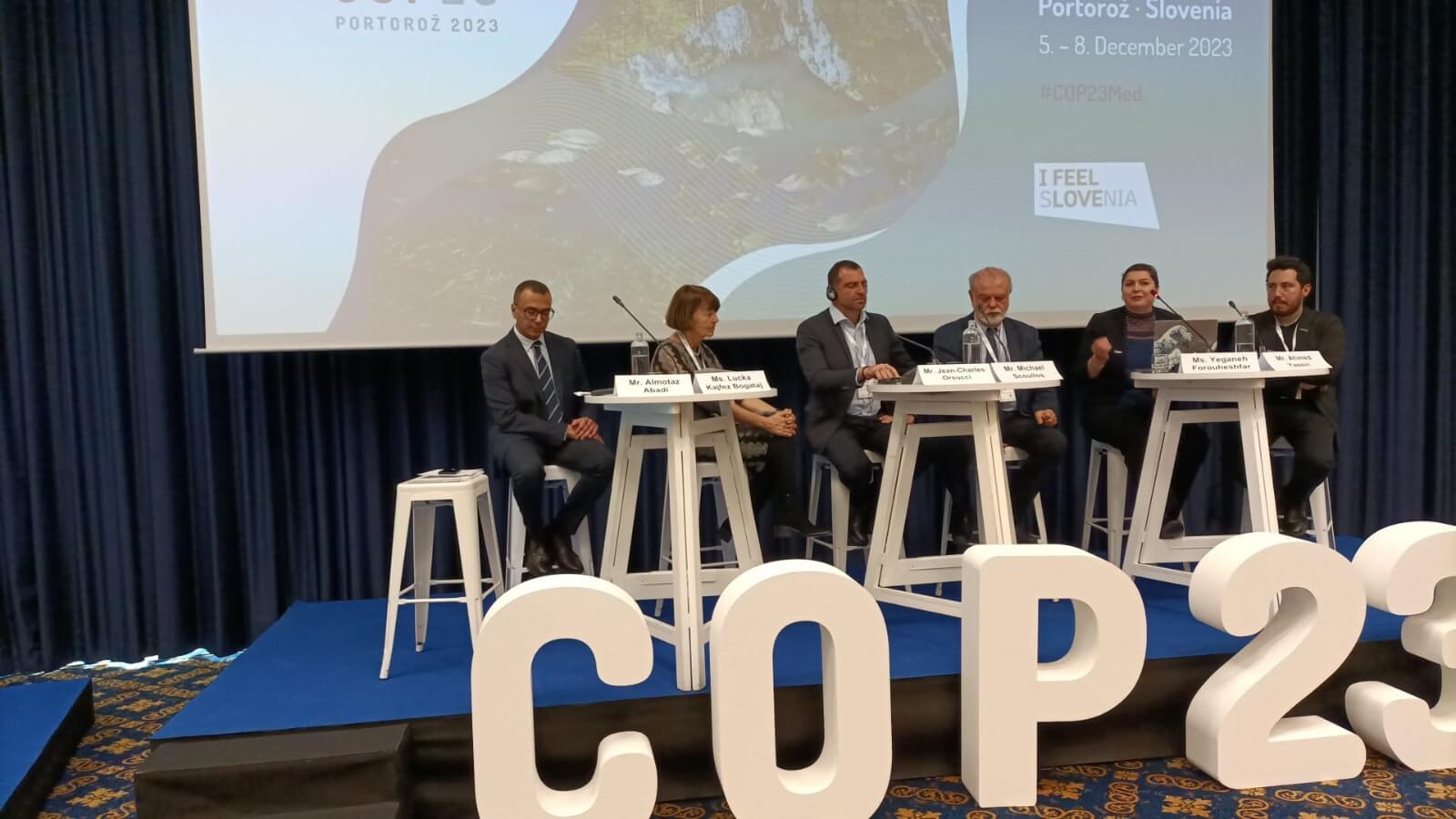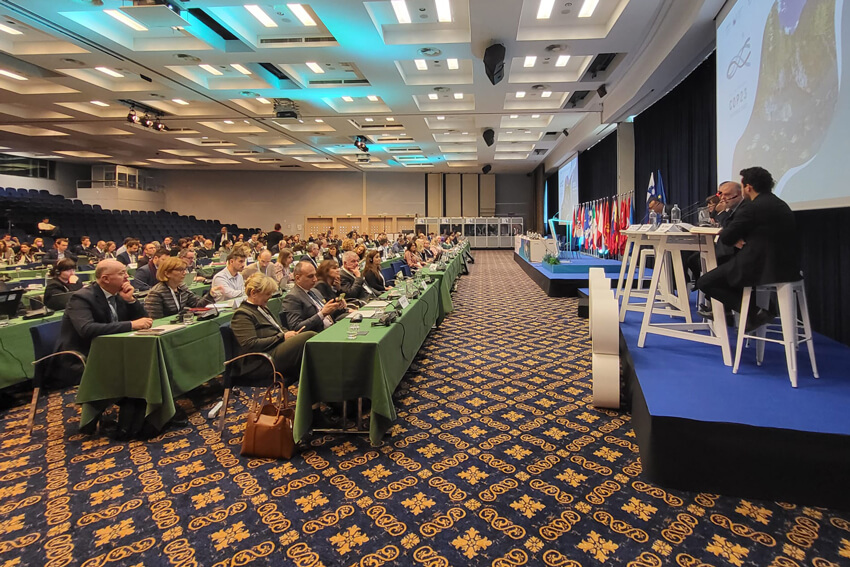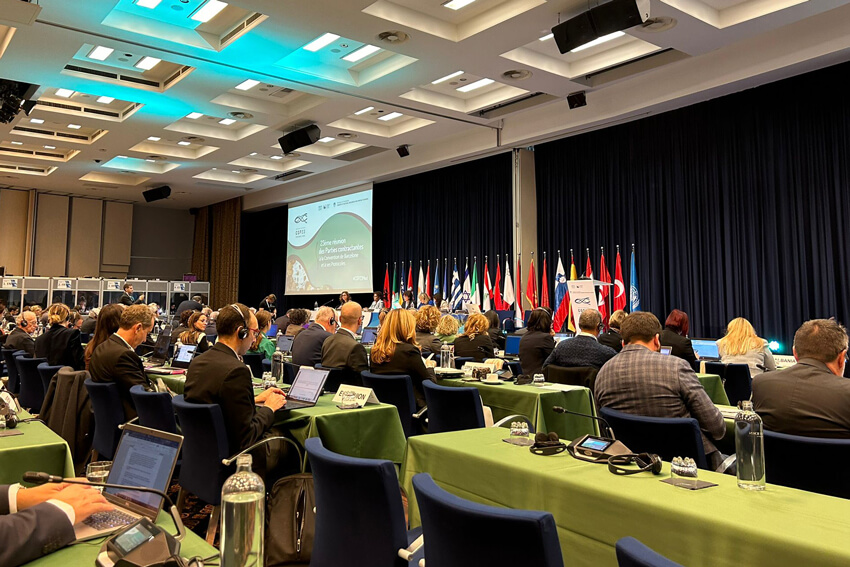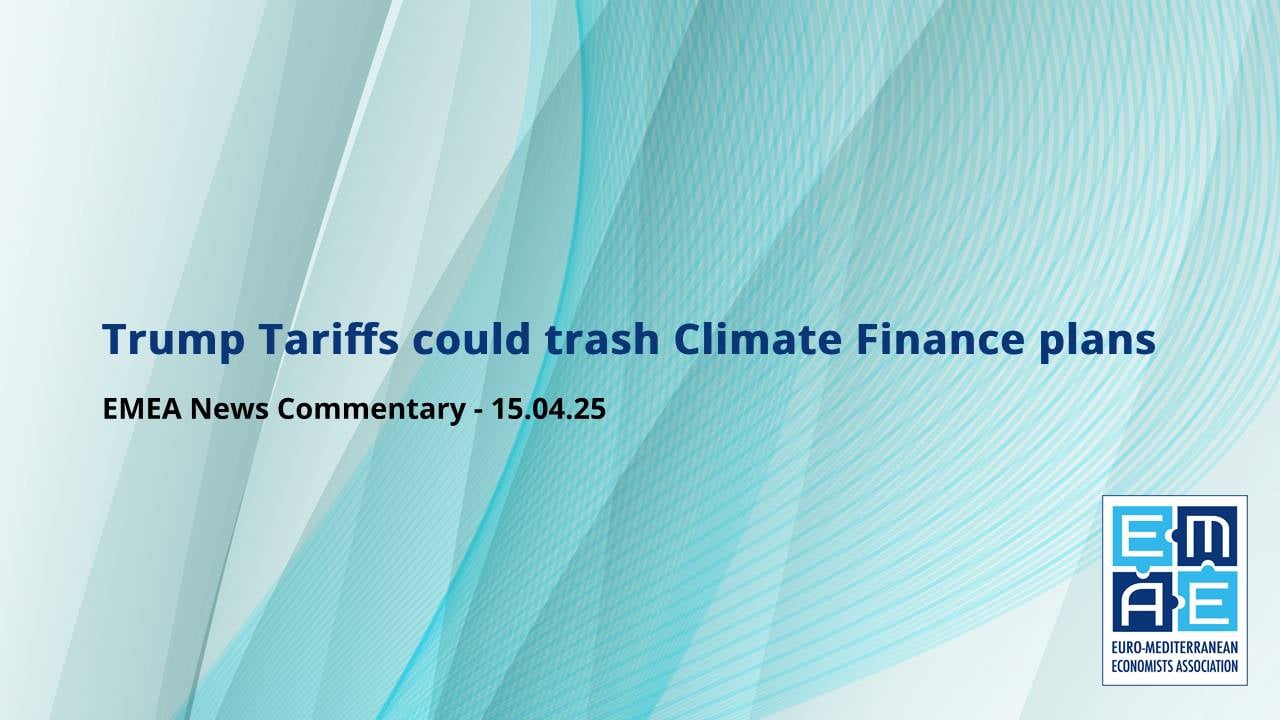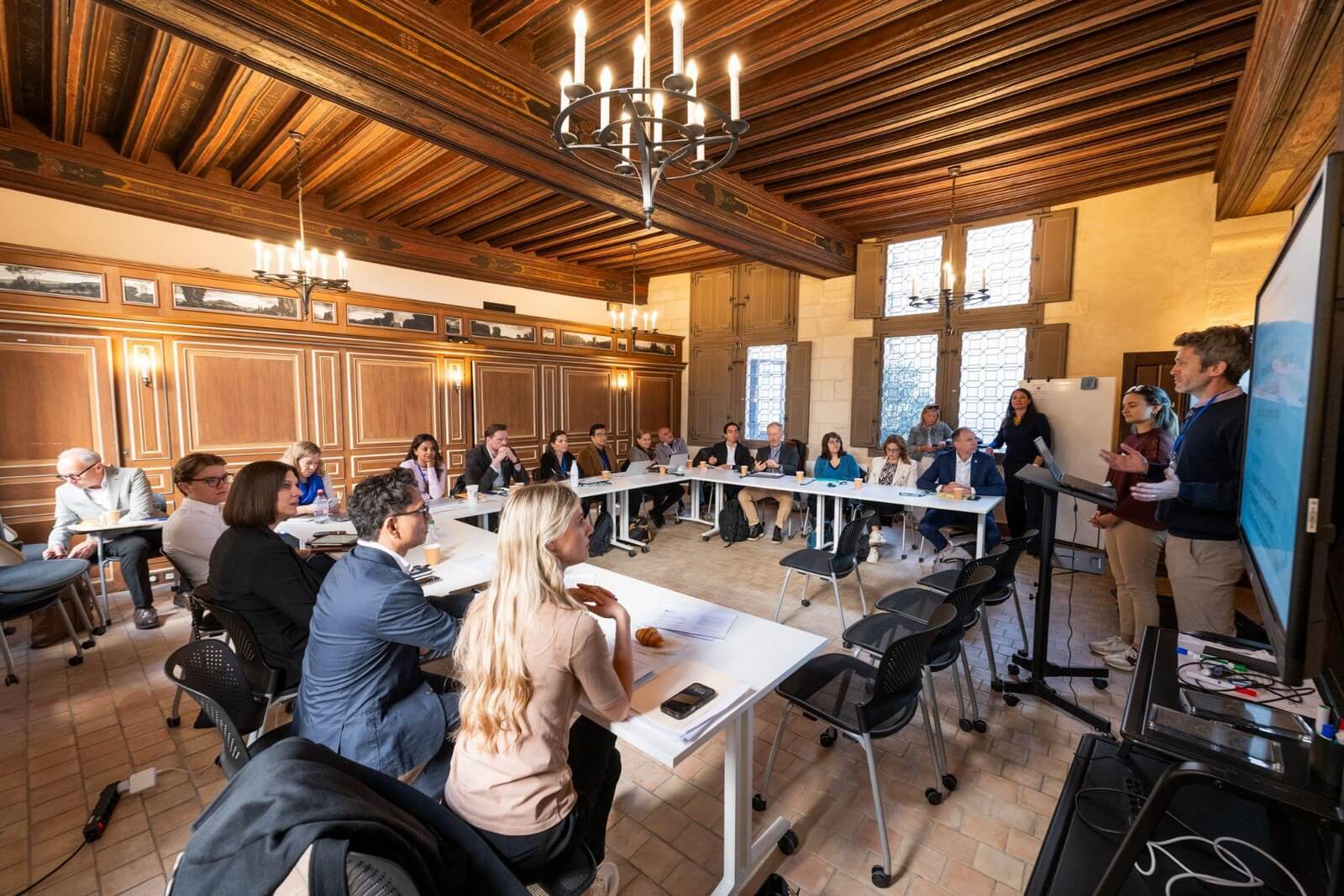The Euro-Mediterranean Economists Association – EMEA is one of the organisations that were invited to participate to the 23rd Meeting of the Contracting Parties to the Barcelona Convention (COP 23), which took place in Portoroz, Slovenia on 05 – 08 December 2023. The Convention was organised by the United Nations Environment Programme -Mediterranean Action Plan (UNEP/MAP).
Representatives from 21 Mediterranean countries attend the Convention which takes pace under the slogan “Green Transition in the Mediterranean: from decisions to actions”. The convention opened with introductory speeches by representatives of Turkey as the current country of presidency, representatives of Slovenia as the new country of presidency, and representatives of the United Nations Environment Programme (UNEP), within which the Convention operates.
The Euro-Mediterranean Economists Association – EMEA was represented by Dr. Yeganeh Forouheshfar, senior researcher at EMEA. Dr. Forouheshfar, participated at the Ministerial Session, panel: “Green transition in the Mediterranean: From decisions to actions” where she discussed about what instruments can policymakers use for the required reengineering of economies while leaving no one behind.
She highlighted that policy makers should aim for equitable and stable policies and innovative solutions that can yield collaborative investments and financing schemes. The road towards a just transition may be a bumpy one but with the enough “political will” it can become a reality.
The main objectives of COP23 Slovenia were to assess and control marine pollution; ensure sustainable management of natural marine and coastal resources; integrate the environment in social and economic development; protect the marine environment and coastal zones through prevention and reduction of pollution and, as far as possible, elimination of pollution, whether land- or sea-based; protect the natural and cultural heritage; strengthen solidarity among Mediterranean coastal States; and contribute to improvement of the quality of life.
The Barcelona Convention is the only regional multilateral legal framework for the protection of the Mediterranean marine and coastal environment. It was adopted as the Convention for the Protection of the Mediterranean Sea against Pollution on 16 February 1976 in Barcelona and entered into force in 1978. Upon its supplementation in 1995, it was renamed the Convention for the Protection of the Mediterranean Sea and Coasts, and the supplemented version has been in force since 2004.
It was established as a result of the Mediterranean Action Plan (MAP), which was designed by the United Nations to improve the environment in the Mediterranean. It was a huge stride towards establishing a new culture of cooperation to combat pollution and reduce adverse environmental impacts, preserve biodiversity and improve the climate.
The Contracting Parties of the Barcelona Convention are Albania, Algeria, Bosnia and Herzegovina, Cyprus, Montenegro, Egypt, France, Greece, Croatia, Israel, Italy, Lebanon, Libya, Malta, Morocco, Monaco, Syria, Slovenia, Spain, Tunisia, Turkey and the European Union. The Barcelona Convention is under the auspices of the United Nations Environment Programme (UNEP), with the Secretariat based in Athens (Greece), and Spain as the Depositary of the Treaty.


